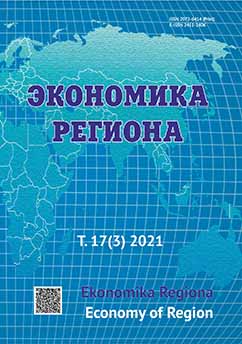Оценка качества онлайн-обучения в системе высшего образования в регионах
Quality Assessment of Online Learning in Regional Higher Education Systems
Author(s): Olga Alexandrovna Gritsova, Elena TissenSubject(s): Social Sciences, Economy, Higher Education , State/Government and Education, Distance learning / e-learning
Published by: Институт экономики Уральского отделения Российской академии наук
Keywords: higher education;online learning;regional university;regional system;regionalisation of higher education;educational technology;education quality assessment;online learning students;Gap analysis;
Summary/Abstract: The quality of online learning mechanisms, widely implemented due to the COVID-19 pandemic, is a significant issue for regional higher education systems. The research aims to assess student satisfaction with the quality of online education by identifying discrepancies between their requirements and the actual learning process. In order to examine the gaps between students’ expectations and perceptions, a new approach was proposed based on the integrated use of Gap analysis and SERVQUAL methodology, combining qualitative and quantitative aspects. SERVQUAL questionnaires for measuring student satisfaction with online learning include the following criteria: tangibles, reliability, responsiveness, assurance, empathy. Full- and part-time undergraduates of humanitarian and socio-economic departments of two universities participated in the study. Ural Federal University bachelors, learning via Moodle and Microsoft Teams platforms, could directly communicate with their peers and professors, while students of National Research Nuclear University MEPhI were engaged in massive open online courses (MOOC). As a result, all five criteria were analysed in the proposed model for quality assessment of online learning to reveal the gaps between students’ expectations and perceptions of the educational process. Significant discrepancies in the «empathy» and «responsiveness» criteria in both groups demonstrate low student satisfaction with the quality of communication and individualisation of learning. The research findings can be used to construct resource allocation models for implementing educational programmes and developing support measures for regional higher education institutions.
Journal: Экономика региона
- Issue Year: 17/2021
- Issue No: 3
- Page Range: 929-943
- Page Count: 15
- Language: Russian

